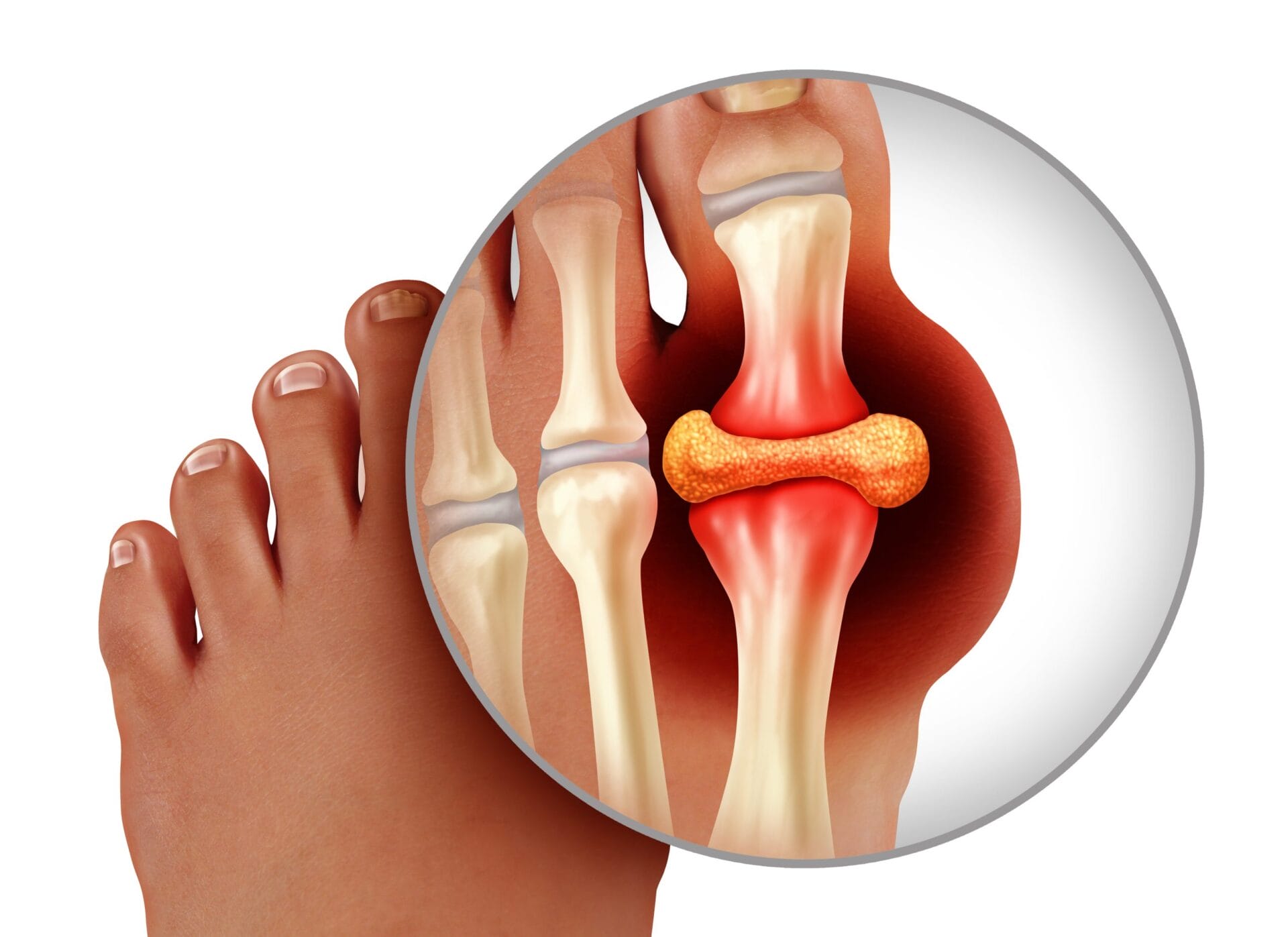What Is Gout?
Gout is a common form of arthritis. Gout is usually found in the big toe but can also be found in other joints, such as in your hands, wrists, elbows, ankles, knees, or feet. The condition mainly affects men over 30 years old, and women after the menopause, and is more common in men than it is in women.
Symptoms of gout
· Sudden and intense pain in your big toe, hands, wrists, elbows, knees, or feet
· Skin over the affected joint becomes red, swollen and tender
· Severe pain particularly within 4-12 hours after the pain begins
If you find you have symptoms of gout, please contact MyHealthcare Clinic on 0207 099 5555 now to arrange an appointment with one of our private GPs, to prevent recurring bouts, worsening pain, and joint damage.
Treatment of gout
In the first instance, attacks of gout are usually treated with non-steroidal anti-inflammatory drugs (NSAIDs), such as ibuprofen, to reduce inflammation and the burning sensation. If the pain and swelling does not get better, your doctor may prescribe steroids.
If you get an attack of gout, we suggest you:
· Take your prescription medicine, according to the instructions given to you by your doctor
· Raise the affected limb, and rest it
· Keep the joint cool by applying an ice pack, for up to 20 minutes at a time
· Drink plenty of water (unless your GP tells you not to)
· Try to keep bedclothes off the affected area at night

What causes gout?
Having too much uric acid in your blood can lead to crystals forming around your joints, which causes pain. Gout can reoccur every few months, or years, especially if it is not treated. If you have frequent attacks, your GP may check the levels of uric acid in your blood. Uric acid is produced in the body when it breaks down purines, substances which are naturally found in the body.
Purines are also present in some foods such as red meat, seafood, particularly anchovies sardines, mussels, scallops, trout, and tuna. Uric acid is also found in alcoholic drinks, particularly beer, and drinks sweetened with fruit sugar (fructose). Normally, uric acid dissolves into your blood stream and passes through your kidneys into your urine. But sometimes your body produces too much uric acid, or your kidneys excrete too little uric acid. When this happens, uric acid can build up, forming urate crystals in a joint, or surrounding tissue, causing the pain, inflammation, and swelling, which is gout.
Other factors affecting gout
· Weight – if you are overweight, your body produces more uric acid and your kidneys find it difficult to process uric acid.
· Other medical conditions – some diseases and conditions increase your risk of gout, such as high blood pressure and chronic conditions such as diabetes, obesity, metabolic syndrome, and heart and kidney diseases.
· Certain medications – low-dose aspirin and some medications used to control hypertension can also increase uric acid levels.
· Family history – if other members of your family have had gout, you’re more likely to develop the disease.
· Recent surgery or trauma – having experienced surgery, or trauma, can sometimes trigger an attack of gout.
